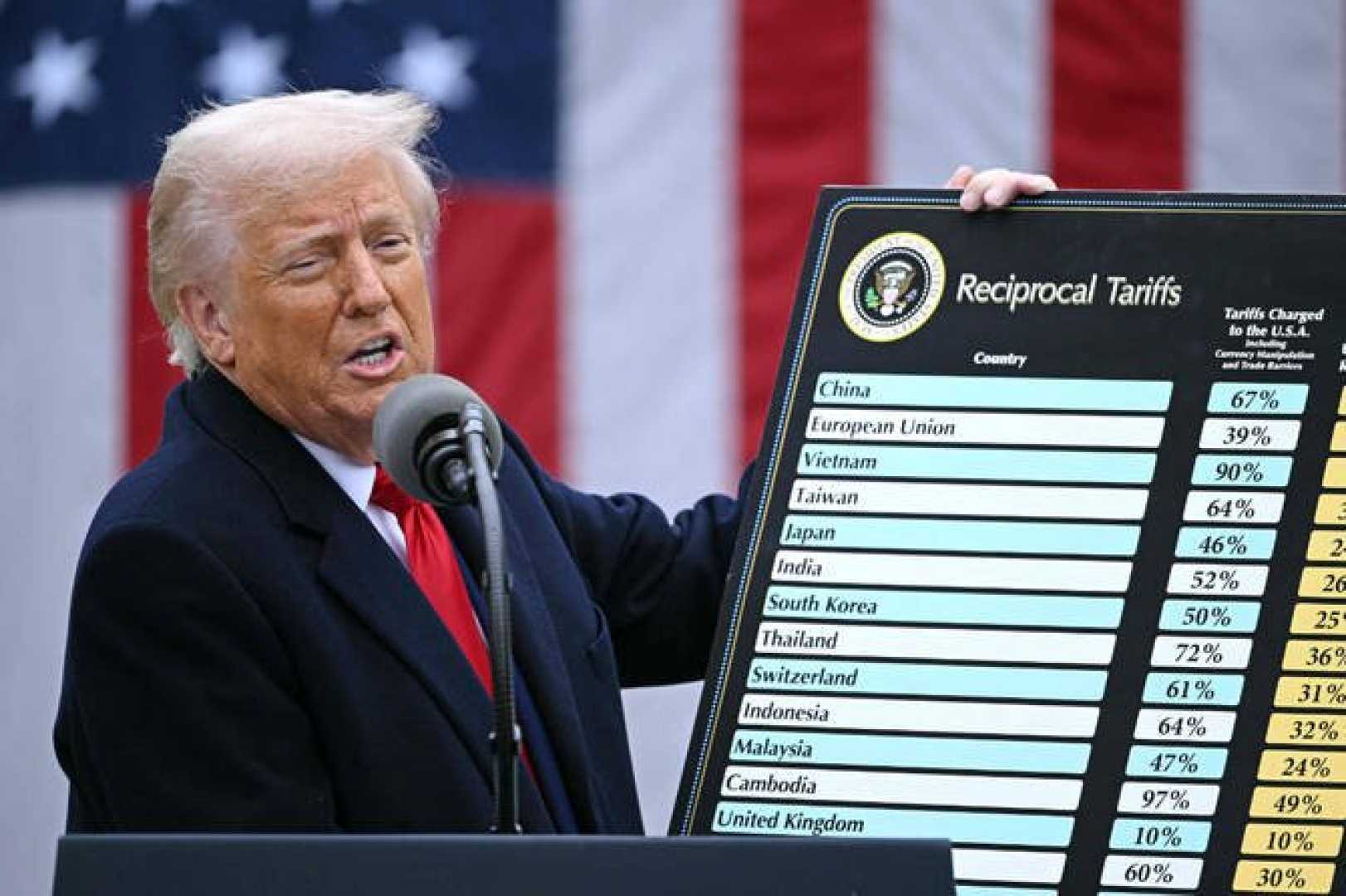Business
Tensions Rise as Trump Unveils New Tariffs Ahead of Key Trade Talks

WASHINGTON, D.C. — U.S. President Donald Trump has introduced a series of sweeping tariffs on imports, a move aimed at boosting American manufacturing while igniting tensions in global trade relations.
Effective immediately, Trump’s tariffs will increase costs for many foreign goods, forcing American consumers to pay more for items ranging from electronics to clothing. The administration claims these tariffs will protect American jobs and stimulate local manufacturing. However, critics argue the policy may ultimately lead to higher prices and economic instability.
Since taking office in January, Trump has imposed tariffs varying from 10% to as high as 200% on specific goods, primarily targeting countries with which the U.S. has contentious political relationships. The tariffs aim to address the significant trade deficit between the U.S. and several nations, including China, Mexico, and Canada. This approach has raised concerns among economists and business leaders who fear potential retaliation and further escalation in trade tensions.
“We are taking action to ensure that American consumers prioritize American-made products,” Trump said during a speech on Friday. “These tariffs will address years of unfair practices by other countries.”
Despite the administration’s assurances, the impact of these tariffs is already being felt in the marketplace. Major retailers and manufacturers are preparing to raise prices as they face increased costs from importing goods. Companies like Target and Walmart have indicated that they will need to pass on these costs to consumers, potentially leading to higher prices for everyday items.
On a legal front, a U.S. trade court ruled in May that some tariffs Trump announced were imposed without the authority necessary under national emergency powers, resulting in ongoing legal challenges. Nevertheless, the administration has continued with its tariff agenda while engaging in trade negotiations with various countries.
As talks with foreign leaders unfold, Trump has also tied tariff discussions to issues like immigration and drug trafficking, seeking leverage in negotiations. Critics say this approach may jeopardize delicate trade relationships and provoke harsh countermeasures from affected countries.
Looking forward, experts warn that the ongoing tariffs could hinder economic growth as businesses adjust their supply chains and pricing structures. Already, inflation has begun to rise, reaching 2.7% year-over-year as of June.
Analysts predict that unless a comprehensive trade solution is reached, tensions will continue to escalate, affecting not only U.S. consumers but also global markets.












